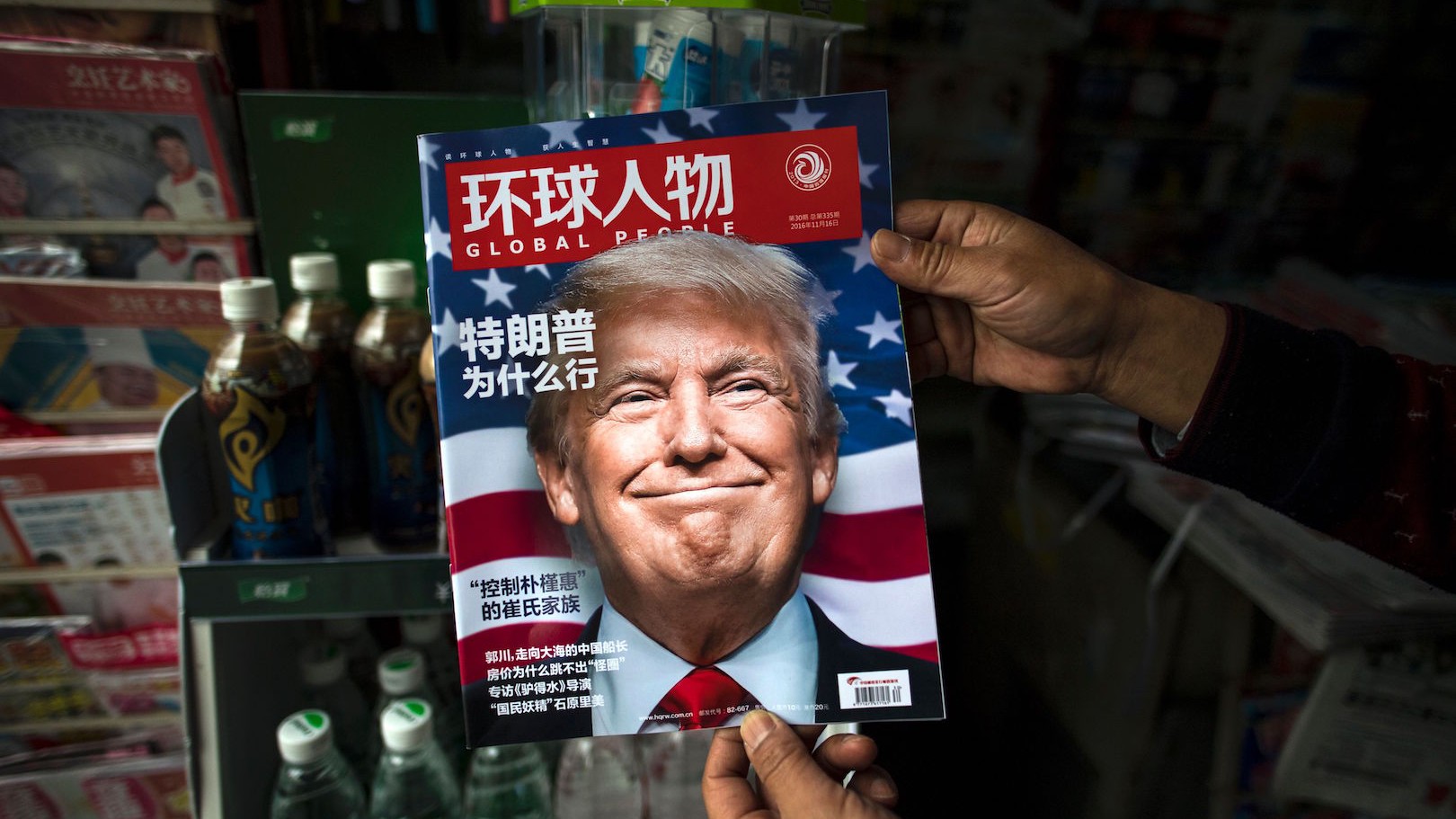China warned Wednesday that it is ready to go to war to retake control of Taiwan if the U.S. continues to push for independence for the self-ruled island.Just weeks after Washington announced a multi-billion dollar arms deal with Taipei, Beijing warned the U.S. to stop undermining regional security.“If there are people who dare to try to split Taiwan from the country, China’s military will be ready to go to war to firmly safeguard national sovereignty, unity, and territorial integrity,” Wu Qian, a defense ministry spokesman, told reporters at a news briefing for the publication of a defense white paper.China has repeatedly said it is willing to take any steps necessary to bring Taiwan back into the fold, but the white paper claims that a growing threat from “separatists” makes the possibility of armed conflict more immediate.“China must be and will be reunited," the paper said. “We make no promise to renounce the use of force, and reserve the option of taking all necessary measures.”The threat of all-out conflict has grown since the 2016 election of Taiwanese President Tsai Ing Wen, who has refused to accept the One-China policy and is pushing for independence.Tsai recently took part in Taiwan’s annual live-fire drills, which simulate an invasion by Beijing. In May and June, Taipei held its largest exercises in five years, including dozens of fighter jets and warships.READ MORE: Taiwan is prepping for a full military invasion by ChinaEarlier this month, the U.S. State Department has approved a potential arms sale to Taiwan, estimated to be worth $2.2 billion. The deal includes 108 Abrams tanks, 250 Stinger missiles, and related equipment.The white paper explicitly calls out the U.S., saying it has “provoked intensified competition among major countries, significantly increased its defense expenditure and undermined global strategic stability.”The U.S. maintains it has an obligation under the 1979 Taiwan Relations Act to provide assistance to “enable Taiwan to maintain a sufficient self-defense capability.”China strongly disagrees and called on the U.S. to “immediately cancel” the proposed sale. Beijing also pointed to the installation of a controversial missile-defense system in South Korea as another example of the U.S. undermining regional security.While the paper outlines China’s plans to make every effort to secure a peaceful reunification with Taiwan, Wu warned: “We must firmly point out that seeking Taiwan independence is a dead end.”READ MORE: The Pentagon is worried China’s military could push to retake Taiwan by forceThe status of Taiwan, an island of 23.5 million people off mainland China, is widely considered Beijing’s most sensitive foreign policy issue. Taiwan has been functioning as an independent country since the end of Japanese colonial rule in 1945, but Beijing claims the territory as its own and has threatened to invade the island if it resists unification.The Pentagon has voiced concerns that China could retake Taiwan by force, saying Taiwan was the “primary driver” for the rapid advances to modernize China’s military, in a bid to deter foreign powers from intervening in any dispute with Taiwan.The white paper offers a rare insight into the workings and strategy of the world’s largest armed forces. It outlines plans for further modernization of the Chinese military, though Wu pointed out that there was still a wide gap between China’s military spending and that of rivals like the U.S.READ MORE: Horrifying footage shows masked thugs beating pro-democracy protesters with metal rods in Hong KongTaiwan has responded to Beijing’s newest threat, calling on China to respond to regional issues, including the current protests in Hong Kong, in a non-violent manner.“[Beijing’s] provocative behavior seriously violated the peace principle in international laws and relations, challenging regional safety and order,” Taiwan’s Mainland Affairs Council said in a statement.“We urge Beijing authorities to renounce irrational, malicious acts such as the use of force, and to improve cross-strait relations and handle issues including Hong Kong rationally so that it can be a responsible regional member." Cover: China's Defense Ministry spokesman Wu Qian gestures as he speaks during a press conference at the State Council Information Office in Beijing, Wednesday, July 24, 2019. China says it will not "renounce the use of force" in efforts to reunify Taiwan with the mainland and vows to take all necessary military measures to defeat "separatists." (AP Photo/Andy Wong)
Cover: China's Defense Ministry spokesman Wu Qian gestures as he speaks during a press conference at the State Council Information Office in Beijing, Wednesday, July 24, 2019. China says it will not "renounce the use of force" in efforts to reunify Taiwan with the mainland and vows to take all necessary military measures to defeat "separatists." (AP Photo/Andy Wong)
Advertisement
Advertisement
Advertisement

